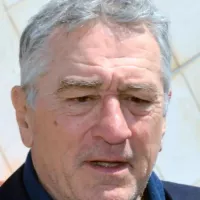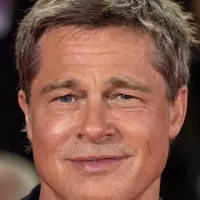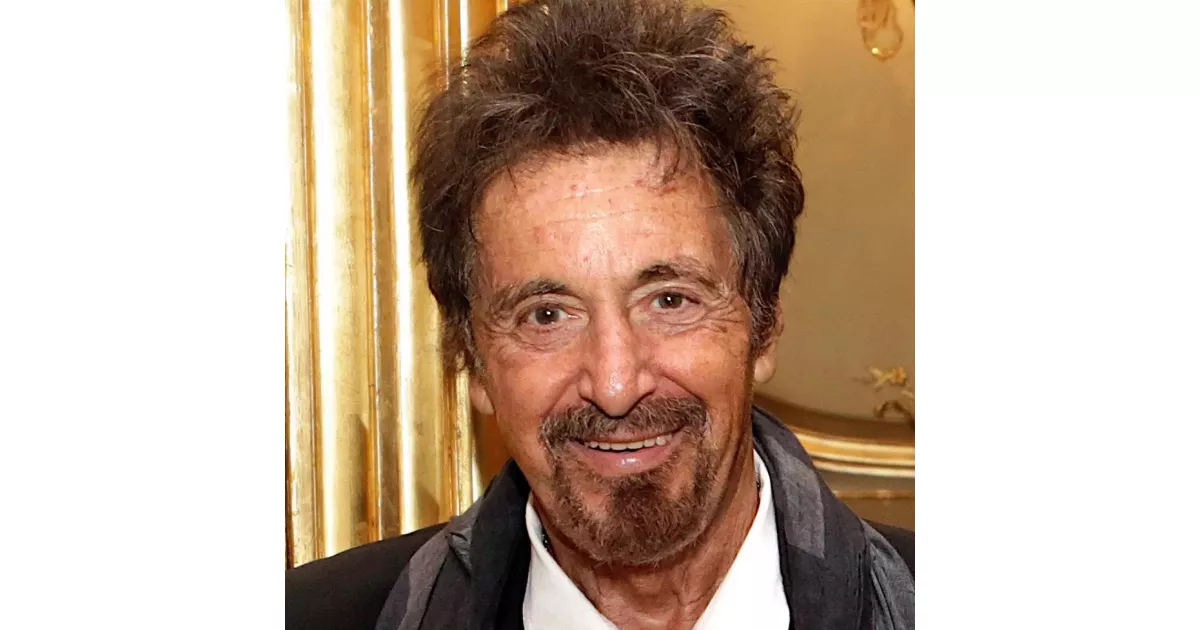Al Pacino is a highly acclaimed American actor, celebrated for his intense performances across a career spanning over five decades. He has achieved the Triple Crown of Acting, securing an Academy Award, two Tony Awards, and two Primetime Emmy Awards. He also holds four Golden Globe Awards and a BAFTA. Recognized as one of the greatest actors, his films have grossed over $3 billion worldwide. He's received numerous honors, including the Cecil B. DeMille Award, the AFI Life Achievement Award, the National Medal of Arts, and the Kennedy Center Honors.
1977: Pacino achieves sobriety
In 1977, Al Pacino achieved sobriety after struggling with alcohol and pills early in his career.
1983: Starred in Scarface
Al Pacino starred in 1983's Scarface.
1987: Frankie and Johnny in the Clair de Lune
In 1987, the off-Broadway play Frankie and Johnny in the Clair de Lune by Terrence McNally, which featured Kenneth Welsh and Kathy Bates, was released.
October 16, 1989: Birth of daughter Julie Marie
On October 16, 1989, Al Pacino's eldest child, Julie Marie, was born to acting coach Jan Tarrant.
1991: Starred in Frankie and Johnny
In 1991, Al Pacino starred in Frankie and Johnny alongside Michelle Pfeiffer. He portrayed a recently paroled cook who initiates a relationship with Pfeiffer's waitress character at their workplace.
1992: Scent of a Woman
In 1992, Al Pacino portrayed the blind U.S. Army Lieutenant Colonel Frank Slade in Martin Brest's Scent of a Woman.
1993: Starred in Carlito's Way
In 1993, Al Pacino starred in Carlito's Way, playing Carlito Brigante, a gangster who vows to go straight after being released from prison.
1995: Starred in Heat
In 1995, Al Pacino starred in Heat with Robert De Niro. This was the first time Pacino and De Niro appeared on-screen together.
1996: Starred in Looking for Richard
In 1996, Al Pacino starred in his theatrical docudrama Looking for Richard, which included selected scenes of William Shakespeare's Richard III.
1997: Relationship with Beverly D'Angelo begins
In 1997, Al Pacino began a relationship with actress Beverly D'Angelo.
1997: Starred in The Devil's Advocate and Donnie Brasco
In 1997, Al Pacino played Satan in The Devil's Advocate, and gangster "Lefty" in Donnie Brasco.
1999: Starred in The Insider and Any Given Sunday
In 1999, Al Pacino starred as Lowell Bergman in The Insider and in Oliver Stone's Any Given Sunday.
2000: Starred in Chinese Coffee and became co-president of the Actors Studio
In 2000, Al Pacino starred in Chinese Coffee, a low-budget film adaptation of Ira Lewis' play. Also in 2000, Pacino was selected as co-president of the Actors Studio.
January 25, 2001: Birth of twins Anton James and Olivia Rose
On January 25, 2001, Al Pacino's twins, son Anton James and daughter Olivia Rose, were born via IVF to actress Beverly D'Angelo.
2001: Received the Cecil B. DeMille Award
In 2001, Al Pacino received the Cecil B. DeMille Award for lifetime achievement in motion pictures.
October 2002: Starred in The Resistible Rise of Arturo Ui
In October 2002, Al Pacino starred in Bertolt Brecht's The Resistible Rise of Arturo Ui for the National Actor's Theater and Complicite.
2002: Starred in People I Know
In 2002, Al Pacino played a publicist in People I Know.
2003: Angels in America released
Al Pacino starred in Angels in America in 2003.
2003: Starred in Gigli and The Recruit
In 2003, Al Pacino accepted a small part in Gigli and starred in The Recruit as a CIA recruiter.
2003: Relationship with Beverly D'Angelo ends
In 2003, Al Pacino's relationship with actress Beverly D'Angelo ended.
2003: Greatest film star of all time
In 2003, British television viewers voted Al Pacino as the greatest film star of all time in a Channel 4 poll.
2004: Modi movie was released
A movie with the title "Modi" based on Dennis McIntyre's play was released in 2004
2004: Starred in The Merchant of Venice
In 2004, Al Pacino starred as Shylock in Michael Radford's film adaptation of The Merchant of Venice.
2004: Won Golden Globe for Angels in America
In 2004, Al Pacino won his third Golden Globe for Best Performance by an Actor for his performance in the HBO miniseries Angels in America.
2004: Published I Heard You Paint Houses
In 2004, Charles Brandt published I Heard You Paint Houses.
October 8, 2005: Two for the Money released
On October 8, 2005, Two for the Money, starring Al Pacino as a sports gambling agent, was released.
October 20, 2006: Received AFI Life Achievement Award
On October 20, 2006, the American Film Institute named Al Pacino the recipient of the 35th AFI Life Achievement Award.
November 22, 2006: Awarded Honorary Patronage by Trinity College Dublin
On November 22, 2006, the University Philosophical Society of Trinity College Dublin awarded Al Pacino the Honorary Patronage of the Society.
2007: Starred in Ocean's Thirteen
In 2007, Al Pacino starred as Willy Bank in Steven Soderbergh's Ocean's Thirteen.
2007: Pacino: An Actor's Vision DVD box set released
In 2007, Al Pacino's three rare films were included on a special DVD box set titled Pacino: An Actor's Vision.
2007: American Film Institute Lifetime Achievement Award
In 2007, the American Film Institute awarded Al Pacino with a lifetime achievement award.
April 18, 2008: 88 Minutes released in the United States
On April 18, 2008, 88 Minutes, co-starring Al Pacino and Alicia Witt, was released in the United States.
September 12, 2008: Righteous Kill released
On September 12, 2008, Righteous Kill, starring Al Pacino and Robert De Niro, was released to theaters.
2008: Relationship with Lucila Polak begins
In 2008, Al Pacino began a ten-year relationship with Argentine actress Lucila Polak.
April 2010: You Don't Know Jack premiered
In April 2010, Al Pacino played Jack Kevorkian in the HBO Films biopic You Don't Know Jack. The film premiered in April 2010.
September 4, 2011: Presented with Jaeger-LeCoultre Glory to the Filmmaker Award
On September 4, 2011, Al Pacino was presented with the Jaeger-LeCoultre Glory to the Filmmaker Award prior to the premiere of Wilde Salomé.
2011: Co-starred in Jack and Jill
In 2011, Al Pacino co-starred as himself in the comedy film Jack and Jill.
February 2012: Awarded the National Medal of Arts
In February 2012, President Barack Obama awarded Al Pacino the National Medal of Arts.
March 21, 2012: Wilde Salomé US premiere
On the evening of March 21, 2012, Wilde Salomé had its US premiere at the Castro Theatre in San Francisco.
September 2012: Announced to play Joe Paterno
In September 2012, it was announced that Al Pacino would play Joe Paterno in the television film Paterno.
October 2012: Starred in Glengarry Glen Ross revival on Broadway
In October 2012, Al Pacino starred in the 30th-anniversary Broadway revival of David Mamet's play, Glengarry Glen Ross.
January 20, 2013: Glengarry Glen Ross revival ended
On January 20, 2013, Al Pacino's starring role in the 30th-anniversary Broadway revival of David Mamet's play, Glengarry Glen Ross, ended.
2013: Starred in Phil Spector
In 2013, Al Pacino starred in Phil Spector, an HBO biographical picture about record producer Phil Spector's murder trial.
October 2015: Previews for China Doll began on Broadway
Previews for China Doll began on Broadway in October 2015.
December 5, 2015: China Doll opened on Broadway
On December 5, 2015, China Doll, a play written for Al Pacino by David Mamet, opened on Broadway.
2015: Starred in Danny Collins
In 2015, Al Pacino took the title role in the comedy-drama Danny Collins.
2016: Received Kennedy Center Honor
In 2016, Al Pacino received the Kennedy Center Honor. The tribute included remarks by Sean Penn, Kevin Spacey, Bobby Cannavale and Chris O'Donnell.
April 7, 2018: Paterno premiered on HBO
On April 7, 2018, Paterno, starring Al Pacino, premiered on HBO.
2018: Relationship with Lucila Polak ends
In 2018, Al Pacino's ten-year relationship with Argentine actress Lucila Polak came to an end.
July 26, 2019: Once Upon a Time in Hollywood released
On July 26, 2019, Once Upon a Time in Hollywood, starring Al Pacino, Brad Pitt and Leonardo DiCaprio, was released.
February 2020: Hunters premiered
In February 2020, Al Pacino starred as Meyer Offerman in the Amazon Prime Video series Hunters. This is Pacino's first television series since Angels in America (2003).
August 2020: Hunters renewed for a second season
In August 2020, Hunters, starring Al Pacino, was renewed for a second season.
2020: Pacino nearly dies of COVID-19
In 2020, Al Pacino nearly died of COVID-19, an experience he discussed in 2024.
2021: Starred in House of Gucci and American Traitor: The Trial of Axis Sally
In 2021, Al Pacino played Aldo Gucci in Ridley Scott's House of Gucci and starred in American Traitor: The Trial of Axis Sally.
2022: Relationship with Noor Alfallah begins
In 2022, Al Pacino began a relationship with producer Noor Alfallah.
June 15, 2023: Birth of son Roman
On June 15, 2023, Al Pacino's son, Roman, was born to producer Noor Alfallah.
September 2023: Modì production started
In September 2023, the production of Modì, a film about Amedeo Modigliani, commenced.
March 10, 2024: Presented Academy Award for Best Picture
On March 10, 2024, Al Pacino presented the Academy Award for Best Picture at the 96th Academy Awards.
October 15, 2024: Released memoir Sonny Boy
On October 15, 2024, Al Pacino released his bestselling memoir titled Sonny Boy with Penguin Press.
2024: Pacino discusses near-death COVID-19 experience
In 2024, Al Pacino revealed that he almost died of COVID-19 in 2020, leading him to question the existence of an afterlife.
2024: Relationship with Noor Alfallah ends
In 2024, Al Pacino's relationship with producer Noor Alfallah ended.
2025: Pacino appears in indie films and fashion campaign
In 2025, Al Pacino starred in indie films such as The Ritual, Billy Knight, Dead Man's Wire, In the Hand of Dante, and Easy's Waltz. In 2025, he became the first movie star to meet with Pope Leo XIV. Additionally, Pacino appeared alongside Robert De Niro in Moncler's "Warmer Together" fashion campaign.
Mentioned in this timeline
Home Box Office HBO is an American pay television service...

Barack Obama the th U S President - was the...

Amazon Prime is a subscription service offering a variety of...

Robert De Niro is a highly acclaimed American actor director...

Brad Pitt is a highly successful American actor and film...

Sean Penn is a highly acclaimed American actor and film...
Trending

12 minutes ago Cavaliers defeat Hornets 118-113: Game recap and key takeaways from the match.
12 minutes ago Vaccination Requirements and Measles Prevention in Cabo San Lucas and La Paz
13 minutes ago Cason Wallace Secures Four Steals in Thunder's Victory: A Promising NBA Performance.
1 day ago Roman Anthony expected as Red Sox leadoff hitter in 2026, lineup prediction

13 minutes ago Isaiah Hartenstein showcases passing skills, removed from injury report, fills stat sheet.
13 minutes ago Sadie Sink and Noah Jupe Star in Romeo & Juliet West End Production.
Popular

Jesse Jackson is an American civil rights activist politician and...

Barack Obama the th U S President - was the...

Bernie Sanders is a prominent American politician currently serving as...

Michael Joseph Jackson the King of Pop was a highly...

Ken Paxton is an American politician and lawyer serving as...
WWE Raw a professional wrestling television program by WWE airs...

